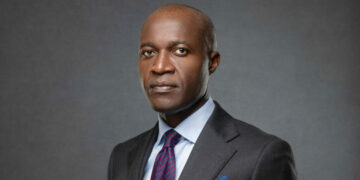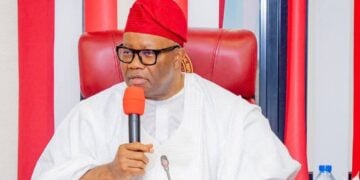Former president of the Nigerian Society of Engineers (NSE), Tasiu Gidari-Wudil, has warned that Nigeria’s electricity sector remains far from achieving the goals set out in the 2005 reform law, despite nearly two decades of policy changes and privatisation.
He said that Nigeria’s installed capacity grew from 6,000 megawatts in 2005 to over 13,000 megawatts by 2023, but average generation remains below 50 percent of capacity due to gas shortages, transmission bottlenecks, and inefficiencies across the value chain.
He stated these while delivering his lecture at the 29th October Lecture of the NSE in Abuja,
The paper titled, “Total Challenges Facing Nigeria and Sub-Saharan Africa: The Transformation of Our Power Sector,” examined the reforms between 2005 and 2023, highlighting the gains, setbacks, and lessons for future policy.
According to him, persistent infrastructural gaps, financial unsustainability, and consumer dissatisfaction continue to undermine progress.
“Reform is a long-term process requiring sustained commitment beyond political cycles,” he said, adding that strong regulatory institutions, transparent tariffs, and meaningful stakeholder engagement are crucial if Nigeria hopes to meet its power needs.
In a separate interview after the lecture, Gidari-Wudil admitted that progress has been slow and far below expectations. He blamed political interference, regulatory weaknesses, and government failures as key setbacks.
“The short answer is no. It’s not as significant as envisaged by the crafters of the policy in 2000 and the law in 2005. By now, according to the Electric Power Sector Reform Act, we should have been far beyond 30,000 megawatts.
“The initial buyers of the utilities were given service-level agreements, but government failed to deliver on its part. The companies also failed, leading to market shortfalls now running into trillions of naira,” he explained.
The engineer also pointed to deep-rooted issues within distribution companies, including collusion by staff in illegal connections and meter bypassing.
“If the distribution companies look inward and fix their internal leakages, especially collection failures, a lot will change,” he added.
On whether reforms should be centralised or devolved, Gidari-Wudil strongly backed state-led regulation under the Electricity Act 2023, which empowers states to establish their own electricity markets.
Earlier in her welcome address, the president of the NSE, Margaret Oguntala, said the lecture coincided with Nigeria’s 65th Independence anniversary, a time for reflection and renewed hope.
“As Engineers, we believe these are not abstract problems. They are real, technical and solvable challenges and we must rise to the occasion,” she said.
She noted that the October Lecture Series was designed to articulate the Society’s position on critical national issues, promote engineering’s visibility in national discourse, and highlight the expertise of past presidents of the NSE.
On his part, the group managing director Of Sahara Power Group, Kola Adesina, represented by the company’s Head of Generation, Godwin Emmanuel, commended the NSE for sustaining conversations around reforms.
Adesina noted that while the sector had recorded gains since 2005 including growth in installed generation to over 13,000MW, expansion of transmission capacity, and improved governance frameworks actual supply to the grid still averaged below 5,000MW, far short of national demand.
He outlined three priorities for the next phase of reforms – cost-reflective tariffs to ensure liquidity and sustainability, grid modernisation to strengthen reliability, and accelerated integration of renewables into Nigeria’s energy mix.






